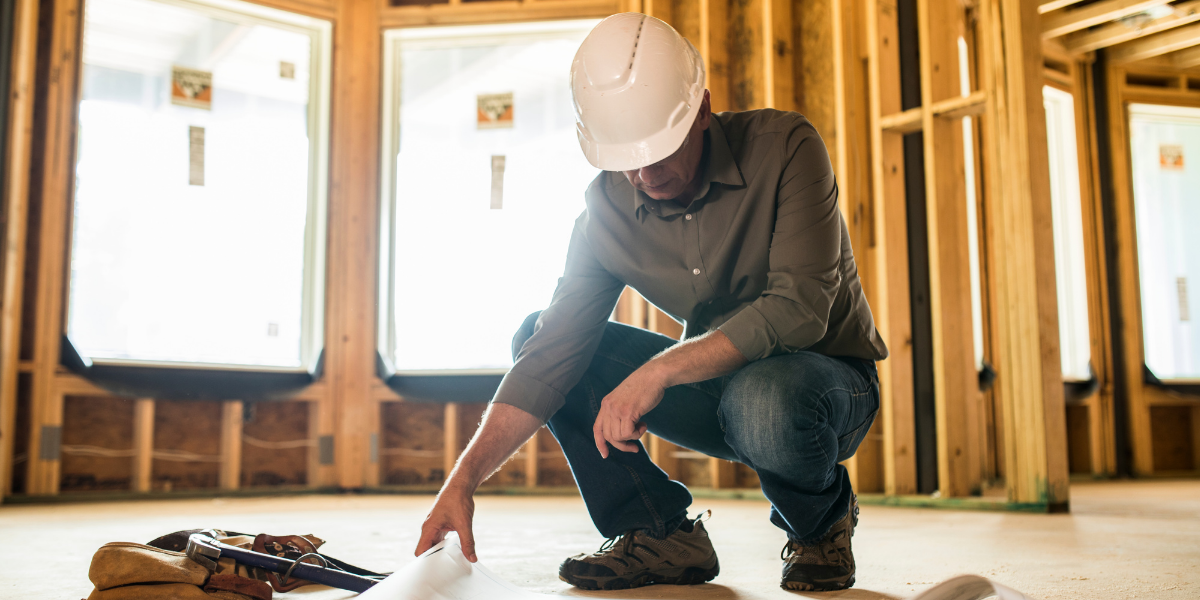
Hiring a general contractor shouldn’t feel like a gamble but it often does. From vague estimates to missed deadlines, the wrong choice can cost you time, money, and a lot of frustration.
Keystone State Restoration is a general contractor Johnstown, PA homeowners have trusted since 1998. We know what separates a solid contractor from one that cuts corners.
This guide offers step-by-step instructions on how to choose a general contractor in Johnstown. It’s designed to help you make informed decisions, avoid common pitfalls, and keep your project moving in the right direction.
Key Takeaways
- A clear project scope and written bids are essential for comparing contractors fairly.
- Licensing, insurance, and local permit knowledge are non-negotiable when hiring in Johnstown.
- Trust and communication should carry more weight than the lowest price.
Define Your Project Clearly
Before you hire anyone, get clear on what you need. A general contractor can’t give you an accurate quote or even confirm if the job is a good fit without clear direction from your side. That means knowing what type of work you're planning (interior updates, plumbing upgrades, painting, or a full remodeling project), how much you’re prepared to spend, and how soon you want the work completed.
Sketching out basic floorplans, collecting reference photos, or listing must-haves versus nice-to-haves can save time and avoid confusion. Even small upgrades need a defined scope. The clearer your goals, the more likely you are to get relevant responses from professionals who are equipped to handle the work.
Gather Contractor Candidates
Once your project is defined, it’s time to start building a shortlist. Referrals are still one of the most reliable ways to find a general contractor—ask neighbors, coworkers, and anyone in local trades who they’ve worked with and would recommend. Firsthand experience says a lot more than a flashy website.
From there, check third-party review platforms like the Better Business Bureau, Yelp, and Angi. Look for consistent praise around quality work, communication, and timely completion. Reviews from customers in Johnstown or nearby areas in PA are especially valuable since they reflect how the contractor handles local jobs and expectations.
Also, pay attention to local presence. Contractors with an actual footprint in Johnstown, and not just a service area listing, are more likely to be familiar with local building codes, permit requirements, and inspection processes. That local knowledge can make the entire process more efficient and less stressful.
Check Credibility
Before you move forward with any contractor, verify they’re operating legally and responsibly. At a minimum, they should hold a valid contractor's license for the type of work they offer in PA. This applies whether they're doing painting, carpentry, or full-scope remodeling services. If they can’t show proper credentials, that’s a red flag.
Licenses
Insurance is just as important. Make sure the company carries both general liability and workers’ compensation coverage. This protects you if something goes wrong on the job, like property damage or injuries on-site.
Permits
Ask who’s responsible for pulling permits and scheduling inspections. A professional team should handle this without pushing it onto you. If a contractor avoids the topic or asks you to file permits yourself, keep looking. It’s a sign they may not be properly licensed or prepared to handle the job correctly.
Review Experience & Past Work

Not all experience is equal—what matters most is whether a contractor has completed projects similar to yours. Ask to see a portfolio of past work and look for jobs that match your project in size, scope, and type. If you're planning home upgrades like waterproofing, roofing, or other exterior work, make sure they’ve handled similar services in this climate.
If possible, see a completed project in person. Photos are helpful, but walking through a finished space gives you a better sense of quality, attention to detail, and how well the team managed the final product.
Also, ask about emergency or time-sensitive work. Contractors who can handle high-pressure situations often run efficient crews and know how to keep a project on track. How they manage the build process impacts your day-to-day life during construction.
Compare Detailed Written Bids
Once you’ve narrowed your list, ask for detailed, written bids from at least three contractors. A solid bid should clearly outline the scope of services, materials being used, labor costs, project timeline, and a defined payment schedule. Anything less opens the door for confusion or, worse, unexpected charges.
Watch for vague language or line items that lack detail. If the pricing seems unusually low compared to others, it could mean they’re cutting corners or planning to tack on costs later. A professional contractor won’t hesitate to explain how their numbers break down and what’s included in the price.
You don’t need to go with the cheapest bid. Instead, you need the one that feels complete, transparent, and tailored to your project. That’s how you select the right team with confidence.
Communication & Working Style
How a contractor communicates early on tells you a lot about what it’ll be like to work with them throughout the project. Are they responsive to questions? Do they follow up when they say they will? If the communication is off before the job even starts, it’s unlikely to improve once things are underway.
Ask who your main point of contact will be and how they handle updates. Some companies offer weekly check-ins; others prefer on-site walk-throughs. You’ll want a team that keeps you in the loop without making you chase them down.
Also, clarify how they handle changes once the work begins. No project goes exactly as planned, so find out what the process looks like if there’s an unexpected issue or if you want to make an adjustment. A contractor with a clear system for managing change orders is more likely to keep the project correct, specialized to your needs, and, most importantly, pleasant to manage.
Watch for Red Flags
Even if a contractor looks good on paper, there are a few warning signs that should stop you in your tracks. Be cautious of anyone asking for a large upfront deposit; anything over 25% is a red flag. Cash-only requests or vague contracts are also common signs of unprofessional or unreliable operations.
Always insist on a written agreement that clearly outlines the scope, timeline, payment terms, and responsibilities. If they hesitate to put things in writing or dodge questions about insurance, permits, or scheduling, it’s a signal they may not be prepared or willing to do things the right way.
Reliable contractors won’t shy away from details. They’ll have no problem walking you through the process and giving straight answers from the start.
Make the Final Decision
Once you've gathered bids, checked references, and had a few conversations, it's time to weigh your options. Start by ranking each contractor based on how well they align with your project scope, how transparent they’ve been about pricing, how clearly they communicate, and how much confidence they inspire.
The lowest bid isn’t always the best choice, especially if it’s vague or missing details. Prioritize the contractor who understands your goals, communicates clearly, and seems capable of handling the job from start to finish without unnecessary hassle.
Trust matters. You’ll be working closely with this team in your home, so go with the one that gives you the most confidence in both the process and the result.
What’s Next After Hiring
Once you’ve selected your contractor, lock everything in with a clear, written contract. It should outline exactly what’s being delivered, the project timeline, the payment schedule, who’s handling permits, how disputes will be addressed, and what the cleanup process includes. If anything’s missing or unclear, ask for revisions before signing.
Establish a regular check-in schedule, whether that’s weekly site visits or progress calls, and keep a record of updates. Taking photos and saving notes can help track progress and resolve issues if something veers off course.
Make sure any changes to the original plan are documented. Change orders, added costs, and schedule adjustments should always be put in writing. It protects both sides and helps keep the project on track.
Work With a Contractor Who Knows Johnstown
Choosing the right contractor is working with a team that understands your home, your community, and what it takes to get the job done right.
Keystone State Restoration has been based in Johnstown since 1998. We’re fully licensed and insured, and our team is built to handle everything from emergency calls to full renovations. We take a straightforward, client-first approach with clear communication, efficient timelines, and no shortcuts.
If you're ready to get started, send us a message. We’ll walk through your goals, answer your questions, and give you a clear path forward.
Conclusion
Hiring a general contractor doesn’t have to be complicated—but it does require a little strategy. The right prep, questions, and expectations can help you avoid delays and costly surprises. Start smart, and your project is far more likely to finish the same way.
Frequently Asked Questions
How do I verify if a contractor is licensed and insured in PA?
Ask for their license number and insurance certificates. You can also check with the Pennsylvania Attorney General’s contractor lookup tool for active registration.
What’s a reasonable deposit when hiring a contractor?
Typically, no more than 20–25% upfront. Avoid contractors asking for large cash payments or full payment before work begins.
What should be included in a contractor’s bid?
A clear scope of work, materials, labor costs, timeline, payment schedule, and who’s responsible for permits and inspections.
How do I plan a remodeling project without going over budget?
Start with a defined scope, include a buffer for unexpected costs (usually 10–15%), and get fixed bids from contractors rather than open-ended estimates.

.png)
.png)
.png)
.png)
.png)





